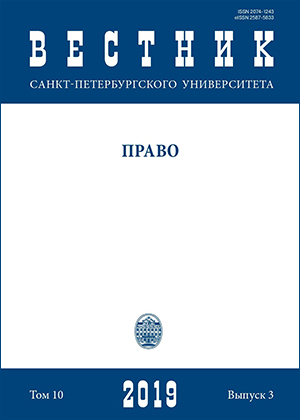Artificial intelligence and criminal liability: problems of becoming a new type of crime subject
DOI:
https://doi.org/10.21638/spbu14.2019.304Abstract
This article is devoted to the investigation of artificial intelligence as a subject of crime and the problems of bringing it to criminal liability. The growth of the influence of self-taught programs in human life and their high rate of development determined the relevance of the study. It is noted that criminal legislation slowly adjusts to the emergence of new relationships. Legislation does not yet contain any formulations of crimes related to committing socially dangerous acts through the use of neural networks, artificial intelligence or artificial intelligence itself. The author analyzes objective signs of committing crimes related to the use of artificial intelligence. Currently, artificial intelligence is able to fully implement the objective side of several crimes provided for by criminal law, but this list will be expanded in the future. The author predicts options for possible illegal activities of self-taught programs. The content of the guilt of artificial intelligence remotely resembles the content of the intellectual and volitional elements of human activity. At the same time, the facts of infliction of harm by artificial intelligence are predominantly characterized by an analogue of human negligence. The study of subjective signs made it possible to form a list of subjects of crimes related to artificial intelligence: program maker; manufacturer or seller of products equipped with artificial intelligence; user of products equipped with artificial intelligence; other persons. It is argued that artificial intelligence is not an independent subject of a crime, but may become it in the future if it is recognized as a person.
Keywords:
artificial intelligence, artificial person, subject of crime, liability, robot, legal personality, cybercrime
Downloads
References
Downloads
Published
How to Cite
Issue
Section
License
Articles of "Vestnik of Saint Petersburg University. Law" are open access distributed under the terms of the License Agreement with Saint Petersburg State University, which permits to the authors unrestricted distribution and self-archiving free of charge.






